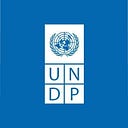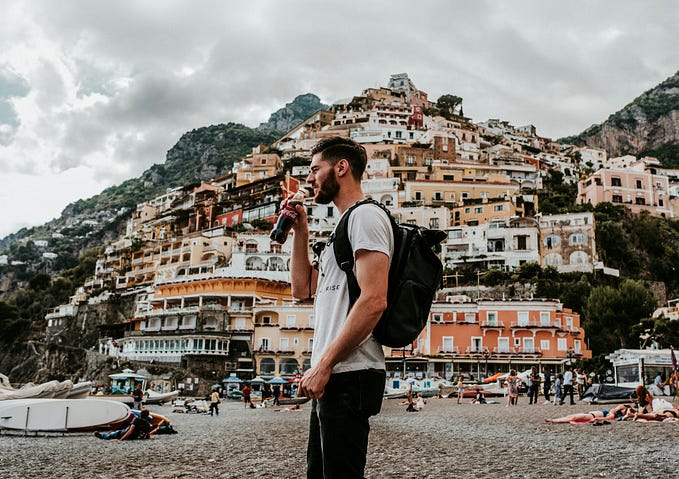30 years after the fall of the Berlin Wall, how far have Eastern Europe’s youth come?
Born in an age of uncertainty, young people in Bosnia & Herzegovina, Ukraine and Georgia reflect on patriotism, freedom and opportunity

Musya Qeburia kicked off what promised to be a long night with friends at a rooftop bar overlooking Tbilisi, in Georgia. An evening filled with cocktails, tobacco and nonchalance, the party continued on at a rave, dancing the night away as if to put important decisions on hold.
“We’re starting to learn what freedom is. Freedom is also scary because there are a lot of unknown choices and nobody is telling you what to do,” said Musya.



Born in the Black Sea port of Poti in 1991, the same year Georgia gained its independence from the Soviet Union, Musya began painting at the age of 3 and by high school, knew it was what she wanted to do for the rest of her life. She attended an art academy and began to spray paint murals by 16.
Her father, an electrical engineer, was reticent at first, but quickly supported her. It hasn’t hurt that she can make a living with her art.
“I’ll never stop painting. It’s something I cannot give up,” she says, eyeing one of her works in central Tbilisi: a larger than life woman filled with stars and crowned with tropical orchids. Perched on cranes or crouching to reach low corners, Musya has authored dozens of artworks. Her murals, commissioned wall paintings, book covers and brand designs have made her a well-known figure.


The opportunity Musya has to leave such a visual mark on her city is a reflection of the progress Georgia has made. An example of an open government, the country has put into place ambitious reforms that include the grassroots reinvention of old industrial cities such as Rustavi and the creation of a single system for all government services.
Still, torn between tradition and modernity, liberal and conservative forces, Georgia has been a theater of impassioned debate.



The culture of work and life in Georgia is changing quickly, and has changed much over the past 30 years. There’s more room for the individual. Younger generations who grew up along with Georgia’s reforms — when people started to believe in a corruption-free country, accountable government and open society — are motivated to push for change and new ideas. But this is also making older generations and more conservative thinkers uneasy and creates tension.
“For people who say they want to keep the traditions of Georgian culture, it means they want to keep out anybody who doesn’t fit into their view of the world,” she believes.

“We would all agree that we love our country. But we have different definitions of what that country should be”.
That cultural divide extends to gender, Musya explains: “culture says that women just need to have children, that their place is in the kitchen and bedroom. A lot of that comes from the church. They think that professional jobs and politics are only for men.”
“Georgia has so much potential, though we know we haven’t fully reached it,” Musya continues. Many of her friends take to the streets to express their opinions.
“We would all agree that we love our country,” she concludes. “But we have different definitions of what that country should be.”



On a late September morning, Darko Soković, 34, headed for lunch in Sarajevo’s crowded historic district, walking past families while young professionals mingled over cigarettes and espresso.
Darko was born in Serbia, but works predominantly in Bosnia and Herzegovina. “I’m proud of this country,” says Darko, a young business entrepreneur and activist. “But it’s not about being Serb or Bosniak or Croat anymore, or about being Yugoslavian. Our identities are much more individual.”

In 1990, the fall of Communism in Eastern Europe precipitated the collapse of the Socialist Federal Republic of Yugoslavia and its descent into a series of violent conflicts. By 1995, when the conflicts ended, the newly-formed countries and territories underwent major transition from centrally-planned to market economies and faced a succession of economic crises.

Darko heads a communications agency and teaches a class on entrepreneurship. His partner, Miladin, makes and sells high-end leather handbags on Instagram. Miladin’s parents, whose work at an electric power plant in northeastern Serbia gave them lifelong job security, still struggle to understand how he makes his living.
“Our parents lived in a planned economy, so they don’t understand competition or entrepreneurship,” says Darko. “We’re the first generation looking at work differently, as something we can create not just some job that is given to us.”




“I’m proud of this country. But it’s not about being Serb or Bosnian, Croat or Yugoslavian any more. Our identities are much more individual.”
For most young people living in Bosnia and Herzegovina, freedom to innovate comes at a heavy price. Close to 47 percent are unemployed. Because of a lack of formal jobs and a mismatch between skills learned in school and the demands of an increasingly service-oriented economy, most graduates have trouble finding a job.
That lack of opportunity, along with their uncertainty of institutions, pushes 20,000 to 40,000 individuals leave every year. That’s a very large number for a country of only 3.5 million, which is in line to join the European Union.
Since 2014, UNDP has been working to increase the competitiveness of businesses in agriculture and tourism, generating 4,600 new jobs and affecting the work landscape for over 22,000 people.
For those born after the conflict, the past is hard to make sense of. “We are the first generation whose identity is not being determined by an outside force like war or a state project like Yugoslavia,” says Darko. In his opinion, what young women and men want above all is a stable future, civil liberties and a government they feel has their best interest at heart.


This year, the country’s LGBTI community hosted its first Pride parade last month amid heavy security — and counter-protests.
“Some choose to go forward and expand how they want to self-identify, while others try to find anchor points in the past, often in discrimination,” said Darko, opening a bottle of wine while Miladin hung over their kitchen counter.
“I couldn’t care less what you call me or whether you accept me,” Darko says. “Just give me my rights so I can fight my battles on an equal footing,” he added.

“We’re the first generation looking at work as something we can create, as opposed to some job that is handed to us.”
For many young people, it’s not just about choices or opportunities, it’s also a new mindset about deserving and working for something you can be proud of. But this generation, left with a myriad of choices for themselves, are also having to contend with old networks, stereotypes and corruption.
“People need to be able to trust the decisions of their government institutions,” explains Darko.
More than 1,000 miles away in Ukraine, Halyna Yanchenko, 31, waited in line at a Kiev pension fund office to register a change of address. When she finally reached the counter, Halyna was told to visit another government building to collect supporting documents and then return.

“That’s two hours wasted,” she complained as her phone rang endlessly. Halyna has just been elected an MP in Ukraine’s parliament, a position whose work and responsibilities barely give her a moment to breathe.
“These inefficiencies have slowed us down in so many ways, and slowed down our economy. Instead of going back and forth between offices and waiting and getting useless paper stamped, I could be working,” she said.
Long lines are remnants of the past and closely associated with petty corruption, Halyna contends. “You’ll see the older generation go to an official meeting or get some papers like I did this morning. And they’ll bring some small gift because they feel they need to grease the wheels. They don’t understand that the state is there to work for them.”



Halyna was born two years before Ukraine declared its independence from the USSR. “In Soviet times, nothing came for free and it always depended on who you knew,” she says. That experience remains relevant today, as she still sees people using the system and networks to get ahead at the expense of others.
Five years after the Maidan revolution, Ukraine remains at the lower end on Transparency International’s Corruption Perception Index. But the public is starting to hold the country accountable. Ukrainians can now check public servants’, judges’, prosecutors’ and policemen’s income and property online, especially valuable in times of elections.
Hopes for a fresh start flourished as Ukrainians elected a new president in 2019, who vowed to end corruption for good and to end the conflict in the country’s east.


“I feel a deep sense of obligation. we need to remember the people who gave their lives to bring us here.”
One of Ukraine’s youngest members of parliament and a civil society representative at the country’s highest anti-corruption authority, Halyna symbolizes that new wave. Like Darko and Miladin, she grew up in a new state grappling with economic reform. Like them, she says she is proud of her country but working hard to transform it for the better.
She ran on a promise to overhaul the country’s taxes, customs and law enforcement authorities, supporting the current administration’s efforts to digitalize government services in an initiative known as “State in a Smartphone”.
It’s a worthy cause, but that work is already taking its toll, Halyna said as she ran up a spiraling staircase at the Ukrainian parliament building. On her first day, she recalls working 20 hours straight.
“It was a really emotional day, exciting and intense.”



the first day of their parliamentary session, MPs collectively visited a memorial to the victims of the war in the east, before walking over to another monument commemorating those who died during the Maidan demonstrations. Having lost two young friends in the protests, she could hardly stop her tears.
“Because I stayed alive, it means I have to pay it back with what I do. It’s a very strong sense of obligation.”
It’s 8pm on a Friday and Halyna has slipped on a pair of running shoes in preparation for a short jog, but a barrage of phone calls and notifications cuts her intentions short. She manages to squeeze out a rare moment of downtime with her kids -Afina, 7 and Askold, 2. Her husband, mother and 16-year old brother have been taking over the house chores.

“My husband is already frustrated with how much work I’m doing and how little I’m home,” says Halyna. At the same time, she doesn’t feel like she deserves to rest. “We need to remember the people who gave their lives to bring us here.”
Brought up in uncertain times, people like Musya, Darko and Halyna are thinking independently and working to create new opportunities for themselves. While the differences between their countries’ past and present are already vast, for many young people change is not coming fast enough. But they’re shaping the kind of country they want. It’s their future and their children’s at stake.

Across Eastern Europe, UNDP has been working with governments and citizens to encourage sustainable growth, good governance and human rights protections that respond to countries’ dynamic journeys over the last few decades.









